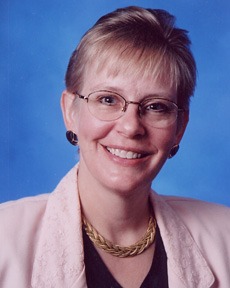The incidence of elder abuse and neglect is on the rise in America. In today’s world, the planning professional must become more familiar with the varied presentations of elder abuse and neglect. Abuse is just the tip of the iceberg and neglect has been widely overlooked.
Neglect is the failure to provide necessary care, assistance, guidance or attention that causes, or is reasonably likely to cause, the person physical, mental or emotional harm or substantial damage to or loss of assets. Do you know what comprises elder abuse and neglect?
Below is a reference list of 9 elder abuse examples:
Physical Abuse is the act of inflicting physical pain or injury upon an older adult. Traditionally this is the abuse that comes first to the mind of the public and professionals – the elder in the Emergency Room with the unexplained bruises.
Emotional or Psychological Abuse is verbal threats or intimidation and is best described as infliction of pain, distress or anguish using either verbal or nonverbal behavior. One example is staff members of a facility recently caught posting images on their Face Book pages of older adults sitting on toilets.
Confinement can be abuse or neglect or both. It is the restraining or isolating of an older adult without their consent. One recent news story focused on 3 older men who were locked in a dilapidated basement of a personal care home. When allowed out of the basement they were chained in the back yard where they were eventually discovered and removed from the facility by authorities. The owner of the personal care home went to prison and had to pay damages to each individual.
Abandonment happens when the caregiver simply walks away from the elder. It isn’t always horrible people that walk away but people like you and me. The probable cause is pressure – lots of it – too much for one person to endure! Working full time – and – taking care of children and grandchildren – and – taking care of a combative aging parent – and – having health issues yourself – and – get the picture.
Passive Neglect is a caregiver’s failure to provide an older adult with necessities, such as, food, clothing, shelter, personal hygiene, medical care, personal safety and just plain basic comfort. This type of neglect may result because of a lack of experience, information, or ability.
Active Neglect is the intentional withholding of basic necessities of life and include monetary or fiduciary neglect denying an older adult medication, medical care, shelter, food, a therapeutic device, or other physical assistance, and exposing that person to the risk of physical, mental, or emotional harm. This may appear innocent at first glance – if you don’t get dressed I won’t give you lunch – and so it begins.
Financial Exploitation could be abuse and neglect and is the misuse or withholding of an older adult’s resources by another. This may be the remainder beneficiaries demand that the assets intended to care for an elder or other person with a disability instead be preserved for their eventual inheritance.
Sexual Abuse involves touching, fondling, intercourse, or any other activity of a sexual nature with an older adult, when the older adult is unable to understand, unwilling to consent, threatened, or physically forced.
And perhaps the most unanticipated form of neglect imaginable:
Neglecting an Elder’s Autonomy through demonstrating a lack of respect of an older individual’s personal rights. This occurs by not allowing visits from people important to the older person, not giving sufficient space for personal privacy including in the bathroom, lack of transportation to necessary appointments, and failure to provide occasional outings to places important to the older individual.
In Conclusion
When you meet with your clients it is important to be able to recognize that elder abuse and neglect take many forms. You must also be aware of the intricate interactions and potential conflicts between the older adult and their caregiver(s).
Don’t let a caregiver over speak and answer for the elder during appointments but be sure that you hear your client’s voice in a secure setting where he doesn’t feel pressured, influenced or intimidated by others.
As professionals you must make sure that you are familiar with the possible types of abuse and neglect, their manifestations and their potential effect on planning options when meeting with at-risk older adults.



